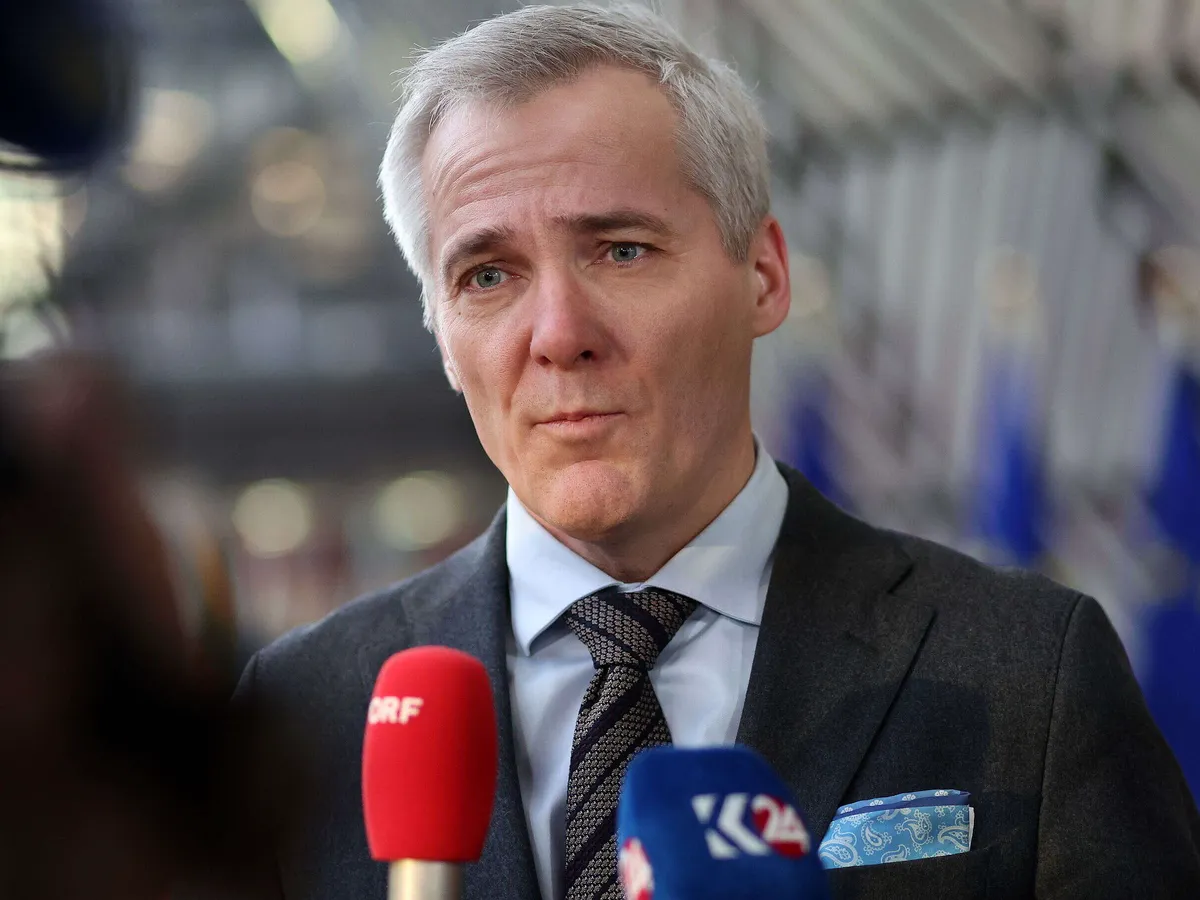The European ministers of the member states of the European Union started preparations for the next EU summit in Brussels on Tuesday.
The summer European Council is held in the week after Midsummer. However, the leaders of the EU countries already meet a week earlier for an informal dinner after the European elections, where discussions about the distribution of the EU’s top positions will begin.
At the actual summit, the agenda includes supporting Ukraine, security and defense, competitiveness, foreign relations and the agenda for the next five-year period.
The EU leaders continue to discuss, for example, the use of the frozen funds of the Russian central bank. It is planned to be coordinated at the G7 level in Italy in mid-June.
European Minister Anders Adlercreutzin (r) thinks it is good that the EU has made a decision on the use of interest income from funds for the benefit of Ukraine. However, in his opinion, the matter needs to be further worked on and ways to be considered for how the funds themselves could be used, not just their income.
“Of course, it would be somewhat challenging legally, but morally more than right.”
The European Central Bank has warned that such a decision could be against international law and threaten the euro’s status as a reserve currency.
Is there wider political support in Europe for the use of funds capital?
“These models are sought after. There are also doubtful voices. Some countries fear what kind of precedent this would set and whether it would have unexpected consequences. I don’t dare to say now about the extent of the support, but I know that concerns have been raised.”
Adlercreutz says that he himself thinks that the capital use of funds is something that should definitely be pursued.
“Great destruction is being caused in Ukraine, and the idea that Western countries should pay for it alone is not sustainable. Yes, Russia must participate in it as much as possible.”
Adlercreutz says that the Nordic countries and the EU countries that have a border with Russia have supported Ukraine the most in relation to the gross domestic product.
“Many countries underperform considerably. If the whole of Europe had helped in relation to GDP the same amount as the Nordic countries and the Baltics, Ukraine would have received over 70 billion euros more in armed aid.”
The Commission promises relief for Poland
The ministers also discussed the rule of law situation in Poland. The EU Commission announced the other week that it considers the rule of law situation in Poland to have improved to the extent that there is no longer a clear danger of a serious violation of the legal principle.
In 2017, the Commission had activated the procedure against Poland under the seventh article of the Treaty of Lisbon.
The Article 7 process of the Treaty can at worst lead to taking away the right to vote in the decision-making of the Council of the EU member states. A similar process is also underway against Hungary. This is a very serious and exceptional procedure.
Parliamentary elections were held in Poland in October, in which Donald Hardly led by the opposition coalition won and ended the eight-year reign of the Law and Justice party.
The pro-European Tusk government announced at the beginning of the year that it intends to take steps to suspend the Article 7 process. It has promised to strengthen the independence of the judiciary.
The Commission has now decided that the process can be cancelled. The Council of Member States does not have decision-making power, but it can present its views to the Commission.
According to Adlercreutz, there was reasonably broad support for ending the Article 7 procedure at the meeting.
“Poland will become a normal country again,” he summed up.
According to Adlercreutz, it is essential that discussions on the rule of law continue. In his opinion, the EU has learned from the cases of Poland and Hungary.
“You have to deal with these issues as soon as they arise, and not let the situation get as bad as it did in Poland and Hungary. In Hungary, there has not yet been a change of attitude. To some extent, the eyes are now also on Slovakia.”
